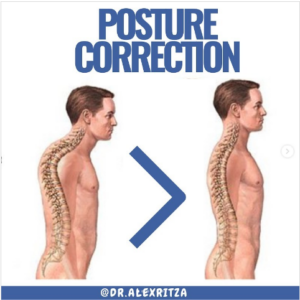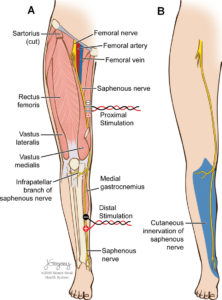WHEN TO EAT CARBOHYDRATES AND WHY | DR ALEX RITZA YORKVILLE TORONTO CHIROPRACTOR
The more aerobic and strength training you do the more high-quality, nutrient-dense carbohydrates you should consume during or shortly after your activity.
One of the many big problems with “Canada’s Food Guide” is that Grains are listed as a distinct category, which suggests that you need to eat them.
Just to make this clear: you do not need to eat grains in order to survive. Furthermore, you don’t have to eat carbohydrates in order to survive either! The body is able to convert proteins and fats to glucose, which is completed by the body through a process called gluconeogenesis. This means glucose is made from a non-carbohydrate source else. If you have ever known or read about someone following a “ketogenic diet”, they are doing just this and deriving all of their fuel from almost exclusively protein and fat-rich foods. Peer-reviewed literature has shown good evidence and led some to recommend the “Keto Diet” for fat loss, improved gut and cognitive function and for “treating” conditions like epilepsy.
Eating solely Fundament Fuels aims to optimize your health and not merely to survive or treat certain conditions. Carbohydrate-rich foods can provide optimal nutritional building blocks for propelling your body’s movement whereas protein and fat alone may not. Carbohydrates from a plant and some fruit sources like squash, potatoes, carrots, tubers and root vegetables, and fruits with a low glycemic index can help to optimize your response to exercise.

MORE TRAINING – MORE CARBS
The more active you are, meaning the more aerobic activities and strength training you do, the more carbohydrates you will need to consume. There will, of course, be an increased demand for protein consumption with greater training loads, but the relative percentage of carbohydrates consumed will increase. The more aerobic the training regiment, say that of a marathon runner or long-distance cyclist, the greater the need to consume a relatively higher percentage of high-quality and nutrient-dense carbohydrates. At the upper end of the aerobic endurance spectrum, the need to consume nutrient-poor sources of carbohydrates like white or wild rice might be necessary to fill the energy gap left by these activities.
The best time to consume carbohydrates is shortly after, and for long-duration aerobic events, during your activity. The focus is not on the quantity of the carbohydrates that you consume but on first generating the need to consume them and ensuring they are of the highest quality. We recommend always aiming to move and lift more.
If you need help with this, this is where our MOVE CURRICULUM comes in.
Unless You Are An Athlete, AVOID SUGAR
Period.
We have evolved to love sugar because it helped our ancestors survive. Survival means you get to pass on your genes. The genes that make sugar taste amazing helped our ancestors greatly. It encouraged them to search out calorie and sugar-rich foods that enabled them to meet their caloric needs. This allowed them to avoid starvation and fueled their ability to continue to hunt, gather and forage.
Regardless of where you live in the world, it is rare to find plentiful sources of natural sugar in the environment. Sure you might find the odd banana tree in South America, a grapevine in Italy, a beehive in the Sahara or a blueberry bush in Canada if you were out foraging and gathering but that would be rare. Even with the advent of agriculture, it would be rare to have a plentiful supply of sugar year-round without the mass transport of it from sugar-producing nations. The point is that the abundance and accessibility of sugar and sugar-rich foods are unlike anything our ancestors were exposed to. The accessibility to sugar is also drastically different from the forces that guided our evolution and the optimal function of the body. Our love of sugar might have helped us survive but it is not helping us reach our ultimate potential.
Sugar is the simplest, most pure form of energy we can consume. It requires little processing in the digestive tract and can be used almost immediately to feed the brain, muscles and blood cells. When consumed, it provides an immediate spark to the body and brain that saves the body from having to break down stored sugars from liver and muscle glycogen or from the preferred fuel source: fat. This immediate fuel source activates dopamine-reward pathways in the brain similar to narcotic use and makes us crave it more and more. We become addicted to it, and over time, our diminished taste sensitivity to it requires us to consume more and more to get our fix.
Sugar may be great for athletic performance if you are running a marathon and need some immediate fuel as your glycogen and fat stores dwindle. The fact remains however that sugar is toxic to the human body in large quantities and should be avoided. Pop, candy, chocolate, high fructose corn syrup and fruit juice provide excessive quantities of sugar with little or no nutrient value. Fruit too should be consumed on a minimal basis for the same reason as grains: it is not the most optimal source of nutrients.
The issue is not that our body is unable to adapt to our tremendous sugar consumption. The problem is that it is not able to adapt enough. The human body always strives towards a state of greater health and for the first few decades of life can accommodate the tremendous sugar intake of the average Canadian. The toxic effect of sugar on our nerves, cardiovascular system and endocrine/hormone system soon catches up with us in the form of diabetes, cancer, heart disease or some other “condition” when the toxic effects outpace the body’s adaptability. The increasingly early onset of obesity and diabetes in children you have likely heard of is a direct reflection of sugar intake rapidly outpacing the capacity to adapt.
 Our body is able to generate energy from fat, protein and more complex carbohydrates from plants in a slower manner, but without the toxic repercussions of simple sugar fuels. Furthermore, foods that tend to contain the most sugar are also the most highly processed, rich in calories and devoid of nutrients. While a great source of energy, fructose-rich processed foods deliver very few building blocks to the human body, may contain damaging anti-nutrients and are far from an optimal source of fuel.
Our body is able to generate energy from fat, protein and more complex carbohydrates from plants in a slower manner, but without the toxic repercussions of simple sugar fuels. Furthermore, foods that tend to contain the most sugar are also the most highly processed, rich in calories and devoid of nutrients. While a great source of energy, fructose-rich processed foods deliver very few building blocks to the human body, may contain damaging anti-nutrients and are far from an optimal source of fuel.
Can I Eat Fruit?
Yes, but in small quantities and choosing those with less simple and sweet-tasting sugars. Sweet fruit is rich in the simple sugar, fructose. Albeit in smaller quantities than other processed foods, it is still potentially damaging to the body.
These fruits are not the most optimal source of fuel and the building blocks your body needs. There is nothing in fruit that can’t be found in other Fundamental Fuel sources like vegetables and meat.




